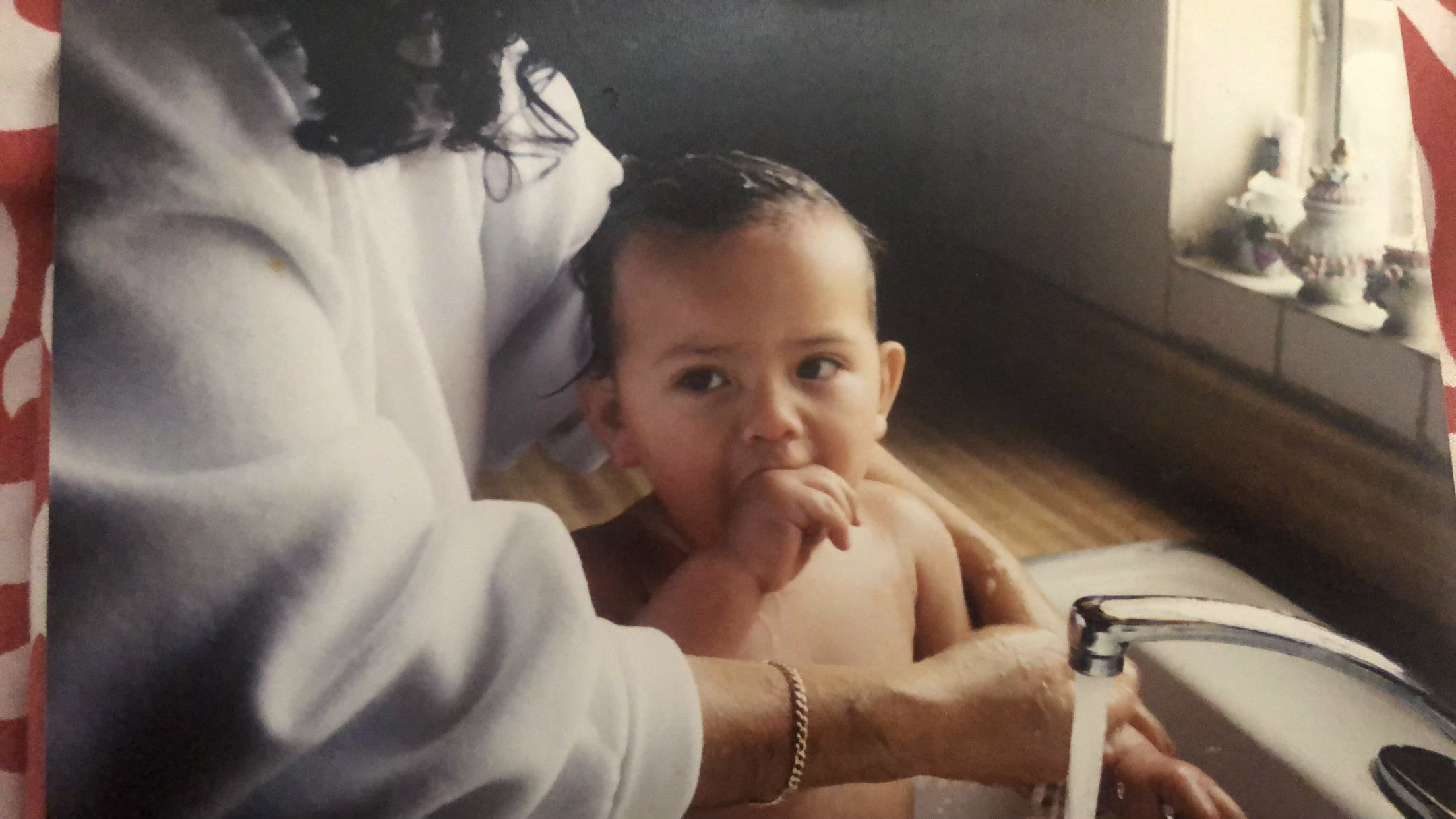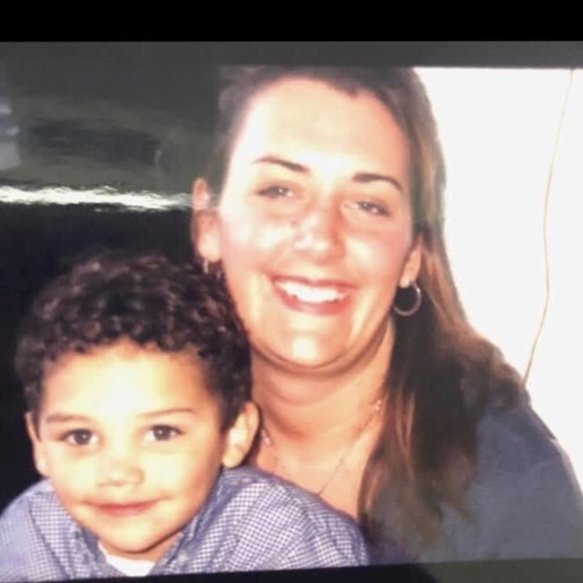Part Five — From Struggle to Strength
Feel free to follow along with the transcript provided below.
BRIANNA RIEUX, HOST:
Hi, I’m Brianna Rieux, and welcome back to Time Served: The Children of Parents Behind Bars. Last time, we saw some of the challenges people who grew up with their parents in and out of custody had to face. In this episode, we’ll focus on how we overcame those struggles despite our circumstances.
(SOUNDBITE OF MUSIC)
BRIANNA RIEUX: My upbringing wasn’t perfect. I had to grow up pretty fast and often found myself taking on the role of the parent or provider in the family. Seeing all the struggles we went through because of our situation really opened my eyes. I knew that if I wanted something different for myself and my future, I had to do things differently.
I understood that in order to break the cycle, I had to make sure I didn’t put myself in situations that could jeopardize my future.
Brandon Marroquin saw what a lifestyle of addiction and mischief could lead to, that’s why he decided to rise above his parents lifestyle. He decided that he was going to do good in school and found a passion for art where he started tattooing as just a hobby. He told me that one day he’d like to become a tattoo artist.
While his parents couldn’t quite figure out their lives, they still made sure to steer Brandon in the right direction.
BRANDON MARROQUIN: It was a matter of just, kind of just to keep going. So for me, my mom, we had this kind of, like core memory when I was a kid, where we bonded over watching the movie Finding Nemo. And in that, the little saying that Dory does that, just keep swimming. Just keep swimming, that she would always chant to me whenever I felt down and whenever I felt like I was being demotivated by stuff. Sometimes I catch myself like humming it to myself whenever I feel like I can't, like, I can't clear my head.

Baby Brandon taking a bath in a sink. Courtesy of Brandon Marroquín.
BRIANNA RIEUX: Keeping that motto in his mind and trying to be a good person has changed his perspective on the world and pointed him in the right direction for his future.
BRANDON MARROQUIN: I have always been the type where, if I could, I wish I could carry the world on my shoulders. But despite that, like, I'll do everything in my power too, or to try it, like, even if it means bringing a smile to one more person's face. Like, for me, that's always been enough.
BRIANNA RIEUX: In a time where there seemed to be no home, Jada Hertel found a light in her grandmother. Even if she was surrounded by monsters, her grandmother's voice was always in the back of her mind encouraging her to keep moving forward.
JADA HERTEL: And what has really helped me, I think, overcome my barriers, is just having one good example, one person, and that was my paternal grandma, and she would tell me, you know, like being honest and being true to yourself, you're capable of doing anything. And like having that one example, even though I would have to go home and be around those people, I would still have those thoughts and her voice in the back of my head kind of leading me to a different path.
BRIANNA RIEUX: Eventually, Jada saw her father recognize and take accountability for the pain he caused her. She was able to forgive him. They now hold a strong relationship and she is able to confide in him with the trauma she went through.

Cameron with his mom. Courtesy of Cameron Walker.
JADA HERTEL: Sharing my trauma with my dad was significantly hard, because I always like cared what he thought about me, like I looked up to my dad a lot, even through his faults, and I never wanted him to blame himself for not protecting me. But he has supported me through and through ever since telling him and he believes me, and he really wants me to see justice. It's been very difficult, but also healing, and it's made me and my dad closer.
BRIANNA RIEUX: Cameron Walker was able to sympathize and understand why someone might end up in a situation like his father. Where bad life choices were made to survive, in an intent to hurt him.
CAMERON WALKER: I was fortunate to have a mother that raised me well, even though we struggled financially, like she, she taught me good morals, you know, and I think that's a huge part of it is just how you were, you were shaped, the people around you. So that's how I ended up, kind of staying on the straightened arrow.
BRIANNA RIEUX: After one last attempt reconnecting with his father, Cameron bailed his dad out for the last time and welcomed him into his family’s home. It was an act of letting go and choosing forgiveness over resentment. Because in the end, he realized he might have missed out on a great friend.
CAMERON WALKER: But it's, it's, it's been a blessing. We become good friends. And this happened at a point in life I had lost, my, my brother and best friend in the world just months before all this happened. So God's timing is impeccable, you know. I had, I was at a point where I was really broken, and then he just, like poom, appeared.
BRIANNA RIEUX: Some kids don’t need to be told what not to do. They see the consequences up close and make the choice to do better. Tauheedah Shakur saw the people around her make mistakes and instead of following that path, she chose another. One where she could help the people caught in those same cycles.
Now, as the Organizing Director at the Youth Justice Coalition, she works every day to support young people and pushes for change in the very system she grew up around.
TAUHEEDAH SHAKUR: I think for me, my dad did just horrible things where I'm just like, I cannot do that. No one told me. No one told me to do these things. I was just like, I'm not doing that. Trauma teaches you either like you can repeat those habits or you cannot. Like, sometimes it's kind of like that one or the other. I think my dad, the things that he did and stuff like that, I think that, that showed me that this is not where I want to be at, at a young age. So I knew that I'm not going to do anything. Thet’'ll land me anywhere down that path.
BRIANNA RIEUX: But sometimes, like in Desiree Desarden’s case, we don’t get the chance to make things right. The opportunity to heal or reconnect just never comes.
Even after her fathers passing, Desiree was able to find peace. To her, he was her biological father but not the person who raised her, not the one she turned to. That reality made it easier to process the loss. It wasn’t about closure. It was about accepting what had always been.
DESIREE DESARDEN: Shortly before he had passed away was some of the times that he was trying to reach out. But there would be times that, like, I'd be busy and I just couldn't pick up the phone. It was heavy on just thinking, like, damn if I would have picked up the phone. Do I think, like, things like this would have happened? I think it was more heavy because, I wasn't like, I'm not really close with his side of the family. So I think the heaviest part was kind of just like having to reconnect with the rest of his side of the family.
BRIANNA RIEUX: For a long time, I thought that I was the only one living this kind of story, like I was the exception to a rule I didn’t ask to be part of. But the truth is, I’m not alone.
We all come from different places, each of us shaped by the things we’ve lived through. Some of us by quiet battles, others by loud, lasting scars. But in those moments of silence we find a way to rebuild what’s broken.
We choose how we move through the world after all of this. It doesn’t erase what happened, but it can make a new path.
The road ahead is never just one thing. It’s a collection of decisions and letting go of the things that would hold us back.
And somehow, in the midst of all the pieces, we discover what we are made of.
Behind Bars, Beyond Stereotypes
A lot of people make assumptions about how kids turn out when their parents are behind bars. But the truth is more complicated.
Let's see what you think!
Children of incarcerated parents are doomed to repeat the cycle and end up in prison.
Kids with a parent behind bars are always violent or dangerous.
Staying in touch with a parent serving time can help the child.
Many schools know how to assist students with parents in prison.
Children with a parent in prison may choose to keep their family situation private.
Only children in poor families have incarcerated parents.
(SOUNDBITE OF MUSIC)
BRIANNA RIEUX: What you’ve heard in this podcast is just a story about pain, it's about strength. About choosing a different path, even when the odds are stacked up against you.
Each of us carried something heavy. Most of us still do. But we’re learning how to live with it and how to turn that pain into power for ourselves and for the next generations. Because even when the past leaves scars, it does not define us. We do.
Thanks for listening to Time Served: The Children of Parents Behind Bars. I’m Brianna Rieux.
(SOUNDBITE OF MUSIC)

